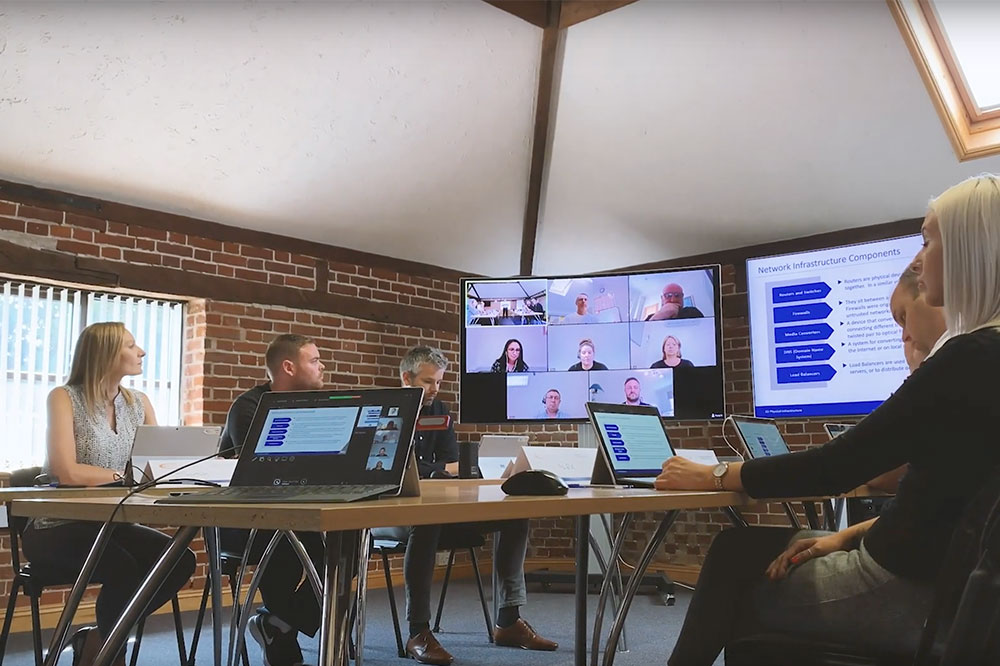CNet Training is celebrating its 25th anniversary this year, having been developing and designing technical programs for a quarter-century.
Having begun its life in 1996, CNet has grown significantly while facing little in the way of competition. The organisation remains the only industry-dedicated technical education provider in the world to award both industry-recognised qualifications and official certifications.
Its success has seen it develop and expand its delivery locations and program offerings to learners from all corners of the world.
Over the last 25 years, CNet has educated over 70,000 individuals, in 45 countries to 153 different nationalities in 218 delivery locations and in 19 time zones. These delivery locations span the Middle East, Asia Pacific, Europe, North America and Africa. All of CNet’s programs are delivered by CNet’s expert Instructor team who are all full-time employees based across the globe and have combined over 300 years of first-hand industry experience.
To celebrate 25 years, CNet has redesigned its brand logo especially for 2021. The new blue design will appear across the CNet website and all marketing materials throughout the year.
CNet was initially established with a focus on training military personnel in internal and external copper and fibre cable installation. From there, the company rapidly expanded and is now the largest and longest-serving industry-dedicated education provider in the world. Originated by CNet, The Global Digital Infrastructure Education Framework is recognised and respected worldwide. It provides designations that have become key skills reference points that allow those holding them to demonstrate their ability and experience.
In 2017, CNet launched its live instructor-led Remote Attendance capability, initially anticipating a drive to need to operate in a more sustainable and environmentally sensitive way. Remote Attendance has allowed learning to continue throughout a global pandemic and make learning even more accessible across the world. Learners can now select the best time to attend a program from a wide variety of time zones available across the globe, for example, if individuals work night shifts or are unable to study during their standard time zone due to other work/life commitments.
President and CEO Andrew Stevens has been with CNet since 1998 and has stressed time and time again about the importance of education and his desire to leave a legacy and make the industry a better place for all. He is committed to increasing awareness of the Digital Infrastructure Industry to provide clear pathways for people to enter the industry.
“Companies don’t last 25 years without a lot of hard work and a dedicated team. I’m grateful to have such a talented and passionate team, many who have worked for the company for a long time and all are driven to help CNet succeed and remain the global leader of technical education for the Digital Infrastructure Industry.
“We have fantastic relationships with our customers, industry associations and media contacts across the world, many of whom we think of as close friends and we wouldn’t be where we are now without them. I love leading the CNet team and seeing all that we have achieved over the years. We have created a fantastic educational framework that I’m immensely proud of and we never want to standstill. We are always striving to do more, and we have a lot of exciting things coming over the next couple of years, so watch this space.”
As well as marking the company’s 25th anniversary in 2021, CNet is also celebrating the Masters Degree in Data Centre Leadership and Management turning five years old.
Looking ahead, CNet is working on plans to expand its technical offering, adding more programs to its renowned education framework and working alongside the industry and leading organisations to create further technical apprenticeships for the network infrastructure sector. This will help to encourage more people into the industry and work as an industry to tackle the on-going skills shortage and make it a more inclusive workplace.


